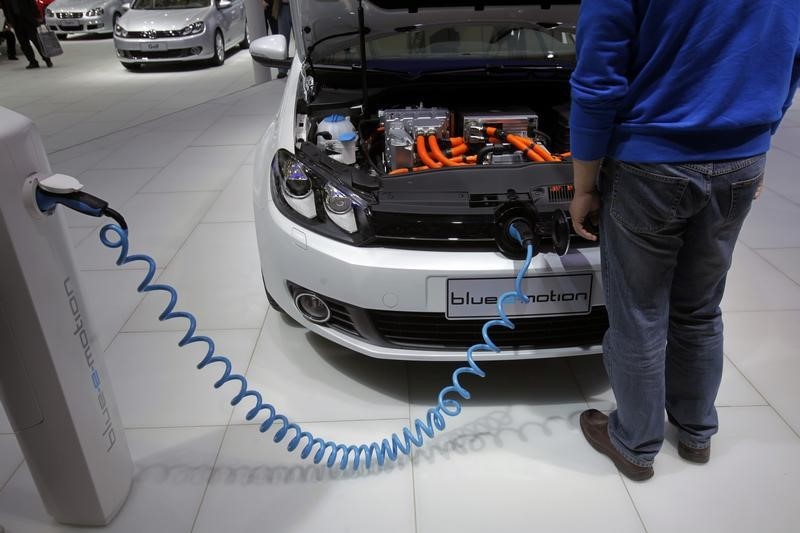MELBOURNE, July 27 (Reuters) - Australia is building a superhighway offering free charging stations in a bid to boost use of electric vehicles, the northeastern state of Queensland said on Thursday, most of its route fringed by the Great Barrier Reef tourist attraction.
The move comes as governments around the world regulate to cut emissions by boosting the use of electric vehicles.
Britain this week said it would ban the sale of new petrol and diesel cars from 2040, following France. The mayors of Paris, Madrid, Mexico City and Athens have said they plan to ban diesel vehicles from city centres by 2025. new superhighway, an 1,800-km (1,118-mile) stretch of mostly coastal road alongside the Great Barrier Reef, will be supplied by renewable energy, State Minister Steven Miles said in a statement.
"This project is ambitious, but we want as many people as possible on board the electric vehicle revolution, as part of our transition to a low-emissions future," he added.
Eighteen towns and cities will make up the first phase of the superhighway, which will become operational in the next six months, making it possible to drive an electric vehicle from the state's southern border to the far north, he added.
The road runs from Coolangatta on the border of neighbouring New South Wales to the city of Cairns, in Australia's far north.
Brisbane-based charging station maker Tritium will supply most of the project's charging stations, a spokeswoman for the state government said, with Schneider Electric (PA:SCHN) supplying the rest.
Tritium's commercial director, Paul Sernia, confirmed the company had supplied its products.
The government's early support for the project is a signal to the market that Queensland is serious about electric vehicles, said Behyad Jafari, chief executive of Australia's Electric Vehicle Council.
The step "provides certainty to unlock investment to grow our economy and create new, high skilled jobs," he added.
Australia's uptake of electric vehicles lags other nations, but is set to increase to around 12,000 by 2020 and about 1 million by 2030, Energy Minister Josh Frydenberg said in May.
Australia's management of the Great Barrier Reef has come under sustained criticism amid the biggest ever coral die-off as a result of the strongest El Nino in 20 years, a weather event scientists say is exacerbated by climate change. than two million people visit the reef each year, generating more than A$2 billion ($1.53 billion) in tourism dollars, an Australian government report showed in 2016.
